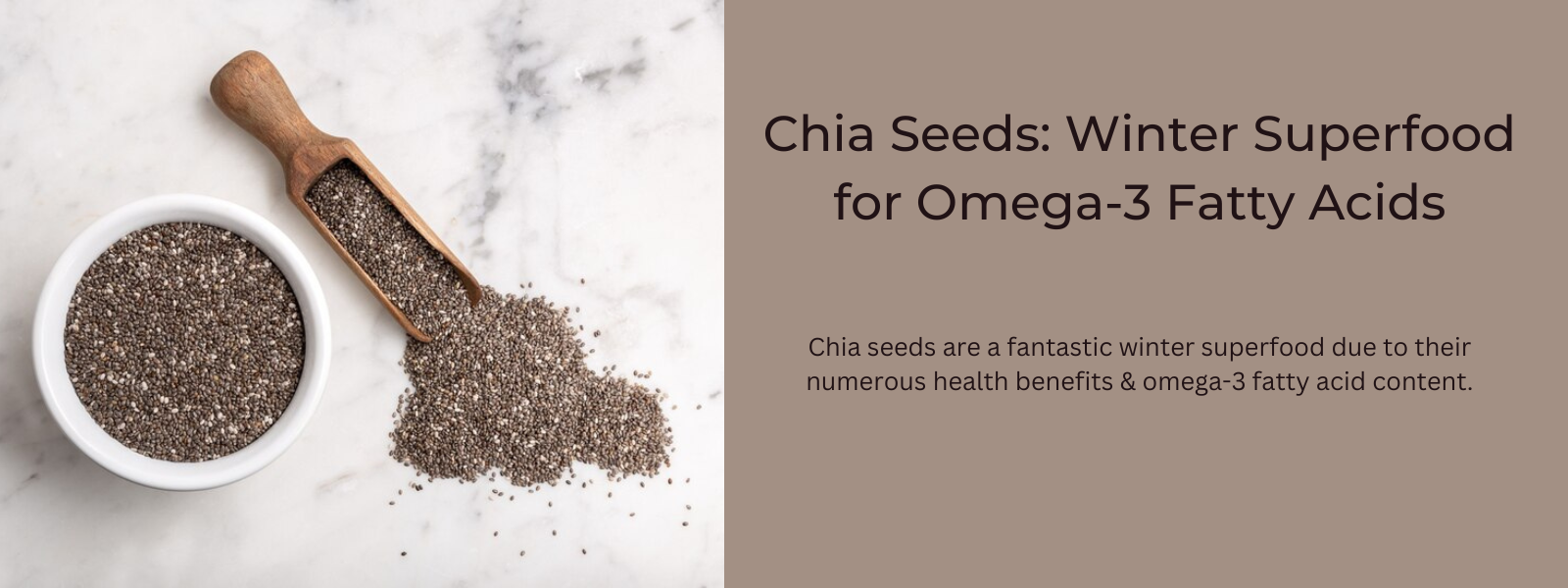Omega-3 fatty acids are essential fats that play a vital role in nourishing the body with healthy fats and supporting overall well-being. Found primarily in fatty fish like salmon, mackerel, and sardines, as well as in plant-based sources such as flaxseeds, chia seeds, and walnuts, omega-3s offer numerous health benefits. These include reducing inflammation, supporting heart health by lowering triglyceride levels and reducing the risk of heart disease, promoting brain function and cognitive health, and improving skin and eye health. Incorporating omega-3-rich foods into your diet or supplementing with fish oil capsules can help ensure an adequate intake of these essential fats, supporting optimal health and reducing the risk of chronic diseases.
Table of Contents
What Are Omega-3 Fatty Acids?
Omega-3 fatty acids are essential fats that play a crucial role in supporting overall health and well-being. These fats are considered essential because the body cannot produce them on its own and must obtain them from dietary sources. Omega-3 fatty acids are renowned for their numerous health benefits, including reducing inflammation, supporting heart health, promoting brain function, and improving skin and eye health.
There are three main types of omega-3 fatty acids:
- ALA (Alpha-Linolenic Acid): ALA is primarily found in plant-based sources such as flaxseeds, chia seeds, hemp seeds, walnuts, and certain leafy greens. While ALA is beneficial, it must be converted into EPA and DHA to exert most of the health benefits associated with omega-3s.
- EPA (Eicosapentaenoic Acid): EPA is found in fatty fish such as salmon, mackerel, sardines, and trout. EPA is known for its anti-inflammatory properties and is particularly beneficial for heart health, mood regulation, and reducing symptoms of depression and anxiety.
- DHA (Docosahexaenoic Acid): DHA is also abundant in fatty fish and seafood and is essential for brain health, cognitive function, and eye health. DHA is particularly important during pregnancy and infancy for fetal brain development and vision.
Health Benefits Of Omega-3 Fatty Acids:
Omega-3 fatty acids offer a multitude of health benefits due to their essential role in various physiological processes. Some of the key health benefits of omega-3 fatty acids include:
- Heart Health: Omega-3 fatty acids, particularly EPA and DHA, have been shown to reduce the risk of heart disease by lowering triglyceride levels, reducing inflammation, improving blood vessel function, and lowering blood pressure. Regular consumption of omega-3-rich foods or supplementation may help reduce the risk of heart attacks, strokes, and other cardiovascular events.
- Brain Function and Cognitive Health: DHA, in particular, is highly concentrated in the brain and plays a crucial role in brain development and function. Omega-3 fatty acids have been linked to improved cognitive function, memory, and mood regulation. Adequate intake of omega-3s during pregnancy and infancy is essential for fetal brain development and may help reduce the risk of cognitive decline and neurodegenerative diseases later in life.
- Joint Health: Omega-3 fatty acids have anti-inflammatory properties that may help reduce joint pain and stiffness associated with conditions like rheumatoid arthritis and osteoarthritis. Regular consumption of omega-3-rich foods or supplementation may help alleviate symptoms and improve joint function in individuals with arthritis.
- Eye Health: DHA is a major structural component of the retina, and adequate intake of omega-3 fatty acids is essential for maintaining optimal eye health and vision. Omega-3s may help reduce the risk of age-related macular degeneration (AMD) and other eye conditions by protecting against oxidative damage and inflammation in the eyes.
- Skin Health: Omega-3 fatty acids play a role in maintaining skin barrier function, hydration, and elasticity. They may help reduce inflammation and improve symptoms of inflammatory skin conditions such as eczema, psoriasis, and acne. Regular consumption of omega-3-rich foods or supplementation may help promote healthy, glowing skin.
- Anti-Inflammatory Effects: Omega-3 fatty acids have potent anti-inflammatory properties that may help reduce inflammation throughout the body. Chronic inflammation is linked to various chronic diseases, including heart disease, diabetes, cancer, and autoimmune disorders. By reducing inflammation, omega-3s may help lower the risk of these diseases and promote overall health and well-being.
Does Omega-3 Fatty Acid Contain Healthy Fats?
Yes, Omega-3 fatty acids are considered healthy fats. They are classified as polyunsaturated fats, which are essential for overall health and well-being. Omega-3 fatty acids play a crucial role in various physiological processes and offer numerous health benefits, including supporting heart health, brain function, joint health, eye health, skin health, and reducing inflammation throughout the body. Incorporating omega-3-rich foods into the diet or supplementing with fish oil capsules can help individuals maintain optimal levels of these essential fats and promote overall health.
Food Source Of Omega-3 Fatty Acids:
Omega-3 fatty acids can be found in various foods, both from animal and plant sources. Some of the best food sources of omega-3 fatty acids include:
- Fatty Fish: Fatty fish are among the richest sources of omega-3 fatty acids, particularly EPA and DHA. Examples of fatty fish rich in omega-3s include salmon, mackerel, sardines, trout, herring, and anchovies.
- Flaxseeds: Flaxseeds and flaxseed oil are rich sources of alpha-linolenic acid (ALA), a type of omega-3 fatty acid. Ground flaxseeds can be sprinkled on oatmeal, yogurt, or salads, while flaxseed oil can be used in salad dressings or smoothies.
- Chia Seeds: Chia seeds are another excellent plant-based source of ALA omega-3 fatty acids. They can be added to smoothies, yogurt, oatmeal, or used as a topping for salads or baked goods.
- Walnuts: Walnuts are a good source of ALA omega-3 fatty acids and provide a convenient and delicious way to boost omega-3 intake. They can be enjoyed as a snack, added to salads, or used in baking recipes.
- Hemp Seeds: Hemp seeds are rich in ALA omega-3 fatty acids and also provide protein and fiber. They can be sprinkled on salads, yogurt, oatmeal, or blended into smoothies.
- Soybeans and Soy Products: Soybeans and soy products like tofu and tempeh contain ALA omega-3 fatty acids. Incorporating soy-based foods into your diet can provide an additional source of omega-3s for vegetarians and vegans.
- Canola Oil: Canola oil is a good source of ALA omega-3 fatty acids and can be used for cooking, baking, and salad dressings.
Best Ways To Incorporate Omega 3 Into Diet:
Incorporating omega-3 fatty acids into your diet is important for maintaining optimal health. Here are some of the best ways to include omega-3-rich foods in your diet:
- Eat Fatty Fish Regularly: Aim to include fatty fish such as salmon, mackerel, sardines, trout, herring, and anchovies in your diet at least two to three times per week. Grilling, baking, or broiling fish are healthy cooking methods that preserve omega-3 content.
- Add Flaxseeds or Flaxseed Oil to Foods: Sprinkle ground flaxseeds on oatmeal, yogurt, salads, or smoothies to boost your omega-3 intake. You can also use flaxseed oil in salad dressings or drizzle it over cooked vegetables.
- Include Chia Seeds in Your Meals: Add chia seeds to smoothies, yogurt, oatmeal, or salads for an easy and convenient way to increase omega-3 intake. Chia seeds can also be used to make chia pudding or added to baked goods like muffins or bread.
- Snack on Walnuts: Enjoy a handful of walnuts as a snack or add them to salads, oatmeal, or yogurt for a crunchy and nutritious boost of omega-3s.
- Use Hemp Seeds in Recipes: Sprinkle hemp seeds on salads, soups, or stir-fries, or blend them into smoothies for an extra dose of omega-3 fatty acids. You can also use hemp seed oil in salad dressings or dips.
- Incorporate Soy Products: Include soy-based foods such as tofu, tempeh, edamame, or soy milk in your diet to increase your intake of ALA omega-3 fatty acids.
- Cook with Canola Oil: Use canola oil for cooking, baking, or making salad dressings to add omega-3s to your meals. Canola oil has a neutral flavor and is suitable for various cooking methods.
- Consider Omega-3 Supplements: If you're unable to meet your omega-3 needs through diet alone, consider taking omega-3 supplements such as fish oil capsules or algae oil supplements.











Leave a comment